
The Timeless Majesty of Shobak Castle
Nestled on a remote hilltop in Jordan, Shobak Castle is a testament to the region's rich history and enduring spirit. Built in 1115 by the Crusaders, it's one of the earliest Crusader castles in the Middle East. The fortress offers a panoramic view of the surrounding landscapes, which are as captivating as the castle itself. Visitors can explore the well-preserved ruins, including the grand entrance, ancient chapels, and underground passages that tell stories of battles and sieges. The atmosphere is serene, allowing tourists to step back in time and imagine the lives of those who once inhabited this mighty stronghold. Don't miss the castle's hidden treasures, like the secret tunnel leading to a nearby spring, which showcases the ingenuity of its medieval architects. Shobak Castle is a must-see for history buffs and adventurers alike, providing a unique glimpse into Jordan's past.
Local tips in Shobak Castle
- Wear comfortable shoes as the terrain can be uneven and steep.
- Bring water and snacks; facilities are limited.
- Visit early in the morning or late afternoon to avoid the midday heat.
- Don't forget your camera; the views are stunning.
- Hire a local guide for detailed historical insights.
The Timeless Majesty of Shobak Castle
Nestled on a remote hilltop in Jordan, Shobak Castle is a testament to the region's rich history and enduring spirit. Built in 1115 by the Crusaders, it's one of the earliest Crusader castles in the Middle East. The fortress offers a panoramic view of the surrounding landscapes, which are as captivating as the castle itself. Visitors can explore the well-preserved ruins, including the grand entrance, ancient chapels, and underground passages that tell stories of battles and sieges. The atmosphere is serene, allowing tourists to step back in time and imagine the lives of those who once inhabited this mighty stronghold. Don't miss the castle's hidden treasures, like the secret tunnel leading to a nearby spring, which showcases the ingenuity of its medieval architects. Shobak Castle is a must-see for history buffs and adventurers alike, providing a unique glimpse into Jordan's past.
When is the best time to go to Shobak Castle?
Iconic landmarks you can’t miss
Shobak Castle - Montreal
Explore the rich history and breathtaking views at Shobak Castle, a medieval fortress in the heart of Jordan's stunning landscape.
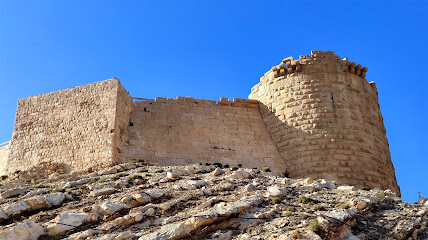
Shobak Castle Visitor Center
Explore Shobak Castle Visitor Center: A gateway to Jordan's rich history and breathtaking landscapes amidst ancient fortifications.
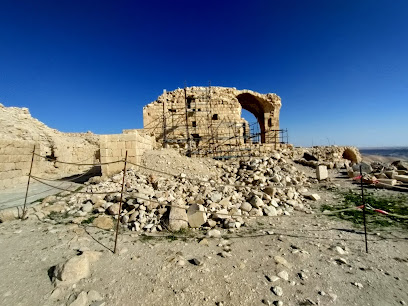
قلعة الشوبك Ash-Shobak Castle
Explore the historical Ash-Shobak Castle, a 12th-century Crusader fortress in Jordan, offering breathtaking views and rich cultural history.
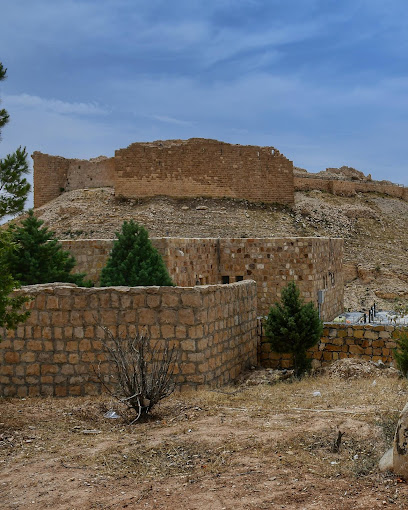
Шобак, форт крестоносцев
Discover the historical wonders of Shobak Fortress, a Crusader stronghold in Jordan, offering breathtaking views and rich heritage.

Unmissable attractions to see
Byzantine Church Petra
Explore the Byzantine Church in Petra, a captivating archaeological site rich in history and stunning mosaics amidst Wadi Musa's breathtaking landscape.
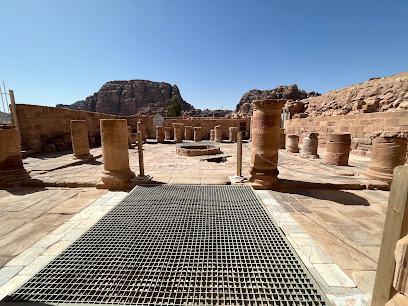
Byzantine Church - Petra
Explore the Byzantine Church in Petra, an archaeological marvel showcasing exquisite mosaics and rich historical significance in the heart of the Rose City.
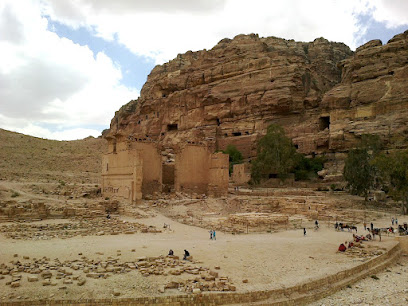
Lion Triclinium
Discover the Lion Triclinium, an awe-inspiring historical landmark in Petra, Jordan, showcasing Nabatean artistry amidst breathtaking landscapes.
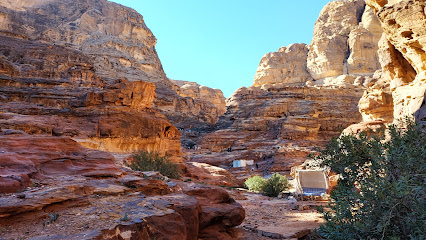
Renaissance Tomb
Explore Petra's Renaissance Tomb, a stunning historical landmark showcasing Nabatean artistry in the heart of Jordan's ancient city.
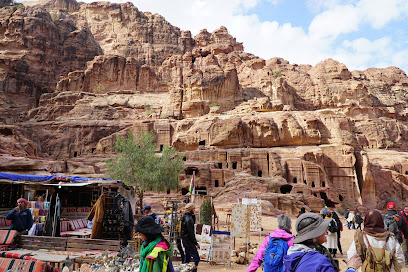
Tomb of the Roman Soldier
Explore the Tomb of the Roman Soldier in Wadi Musa, a stunning historical landmark showcasing ancient Roman artistry amidst breathtaking desert scenery.
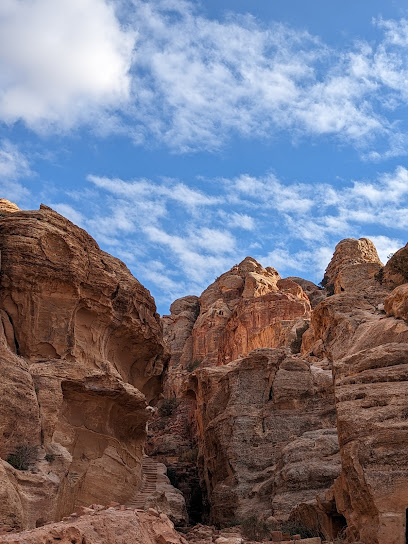
Blue Church
Explore the Blue Church in Uum Sayhoun, a breathtaking historical landmark showcasing stunning architecture and rich cultural heritage.
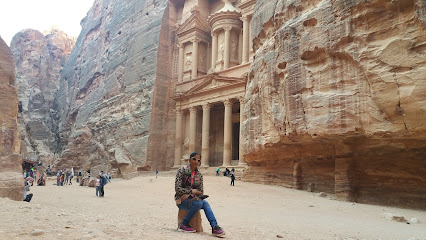
مطل الجهيره
Discover the breathtaking beauty of Al-Jahira viewpoint in Nejel, Jordan, where stunning landscapes meet serene tranquility.
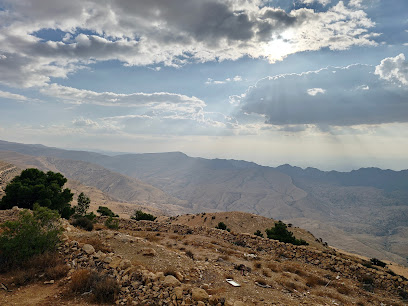
مطل
Explore the breathtaking views and serene atmosphere of مطل in Wadi Musa, a hidden gem perfect for nature lovers and adventure seekers alike.
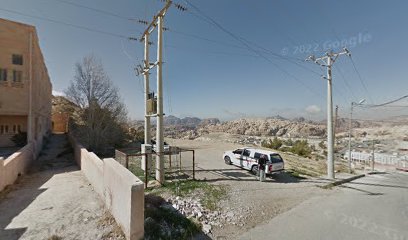
Broken Pediment Tomb
Explore the Broken Pediment Tomb in Wadi Musa, a historical landmark rich in Nabataean heritage and architectural intrigue.
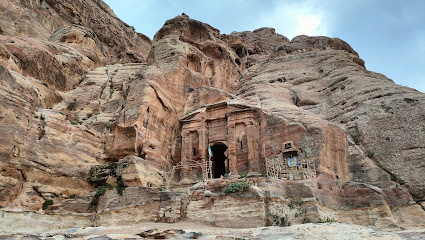
Alrayan Farm/الشوبك
Discover the tranquil beauty of Alrayan Farm in Shobak, Jordan, where nature flourishes in vibrant colors and serene landscapes.
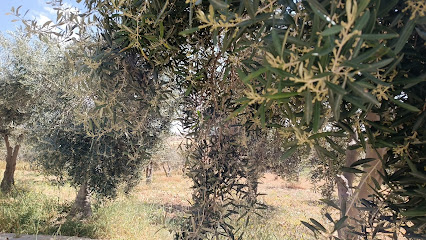
كوخ الغريب الشوبك The stranger cottage
Discover the tranquil beauty and rich history at The Stranger Cottage in Shobak, where lush gardens meet cultural heritage, offering a unique retreat in Jordan.
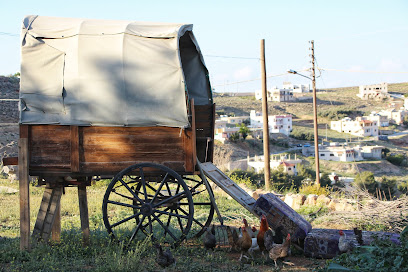
الخزنه
Explore Al-Khazneh, the breathtaking Treasury of Petra, an architectural marvel and a symbol of Jordan's rich history and culture.
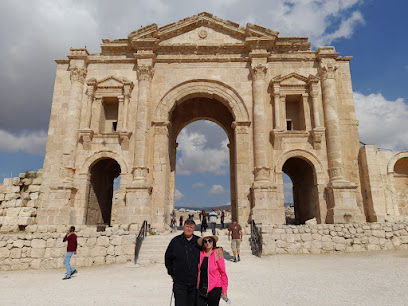
Al-Madars المدرس
Explore Al-Madars: A historical gem in Wadi Musa, where rich culture and breathtaking landscapes await your discovery.

اجرين العرجاء
Explore the breathtaking trails of Ajrain Al-Arja in Shobak, a hidden hiking gem with stunning landscapes and diverse ecosystems.

مطل قلاع طوال
Discover the breathtaking views of Petra at Qalaat al-Batra, where ancient history meets stunning natural beauty.
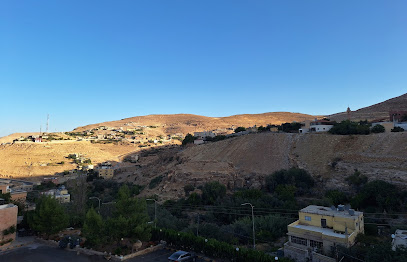
Essential places to dine
Falafel Time Restaurant
Discover authentic falafel and Middle Eastern cuisine at Falafel Time Restaurant near Petra - a true taste of Jordanian hospitality.
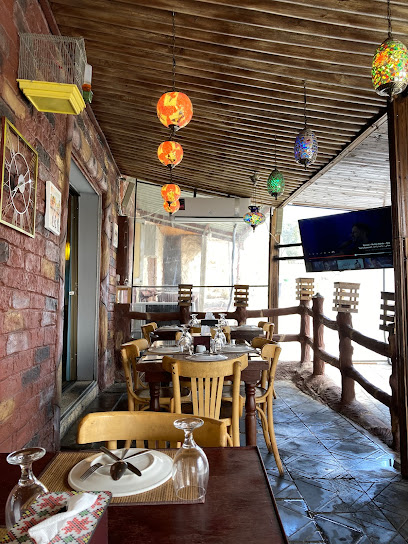
My Mom's Recipe Restaurant
Experience authentic Jordanian cuisine at My Mom's Recipe Restaurant in Wadi Musa - where every dish tells a story.
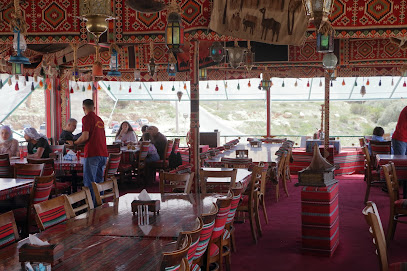
Beit Al-Barakah restaurant
Experience exquisite Jordanian flavors at Beit Al-Barakah in Wadi Musa – where every dish tells a story.
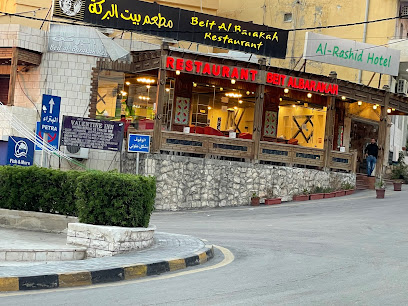
Alqantarah Restaurant
Experience authentic Middle Eastern cuisine at Alqantarah Restaurant near Petra – where every dish tells a story.
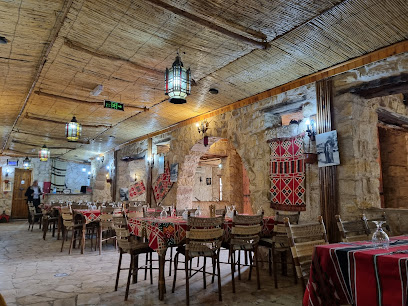
Petra Night Restaurant
Savor authentic Jordanian cuisine with stunning views at Petra Night Restaurant in Wadi Musa near Petra.
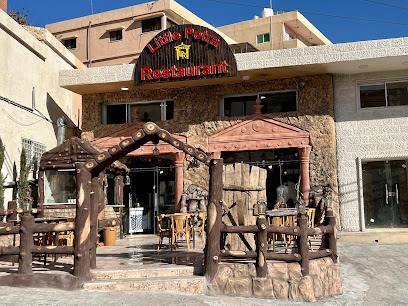
Petra Kitchen
Discover authentic Jordanian cuisine at Petra Kitchen - a unique cooking school experience in Wadi Musa's enchanting setting.
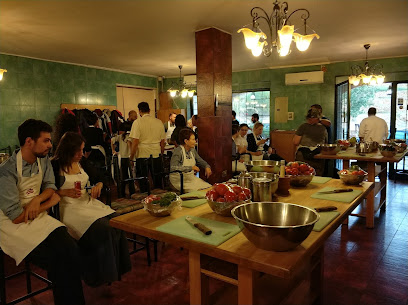
High Castles Restaurant
Experience authentic Jordanian cuisine at High Castles Restaurant in Wadi Musa, where breathtaking views meet delicious flavors.
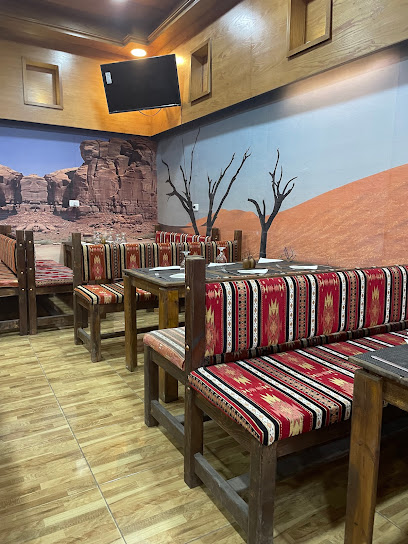
Al Madafa
Discover authentic Middle Eastern cuisine at Al Madafa in Wadi Musa, offering a delightful buffet experience near Petra's ancient wonders.
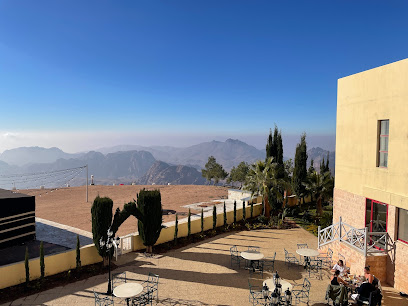
Markets, malls and hidden boutiques
محلات الحاج صباح و أولاده التجارية
Discover authentic Jordanian flavors and local produce at محلات الحاج صباح و أولاده التجارية in Shobak, a must-visit grocery store for every traveler.
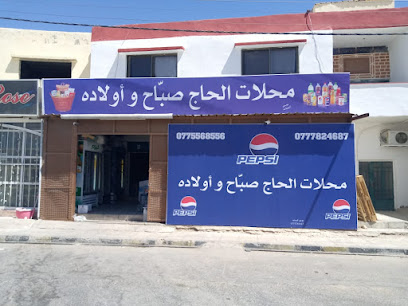
Pure coffee
Discover Pure Coffee in Alshoubak, where exceptional brews and a cozy atmosphere await coffee enthusiasts and travelers alike.
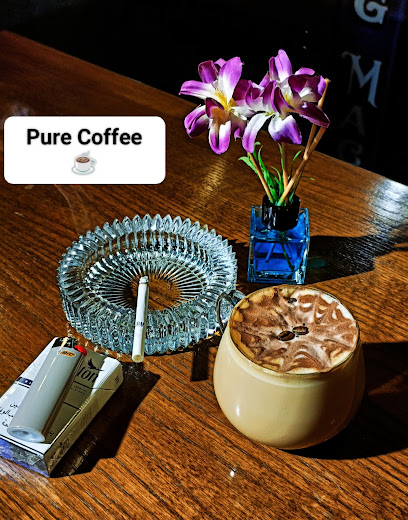
Town Bazaar
Explore Town Bazaar in Jordan for an extraordinary shopping experience featuring local craftsmanship and modern trends in clothing.

The Sand Castle Souvenir&Bazaar
Explore The Sand Castle Souvenir & Bazaar in Wadi Musa for authentic Jordanian souvenirs and local crafts that capture the spirit of your travels.
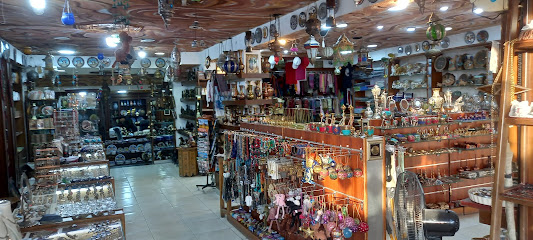
محمص وسوبر ماركت الاكابر
Experience the essence of Jordan at Mahmas Supermarket, where local flavors and friendly service await every traveler.
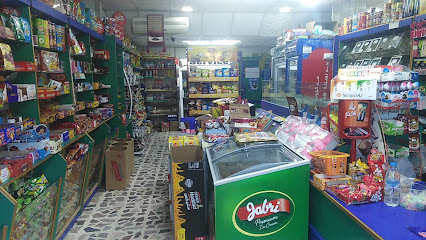
Super Market/ سوبر ماركت الملاحيم
Explore the vibrant flavors of Jordan at Super Market Al Malahim in Al Jaya, where local produce and delicious snacks await every traveler.
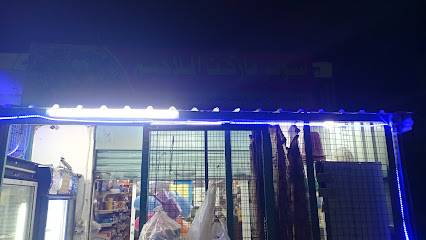
قهوة الاسمر
Experience the rich flavors of freshly brewed coffee at Café Al-Asmar, a charming coffee shop along Kings Highway, perfect for relaxation and local culture.
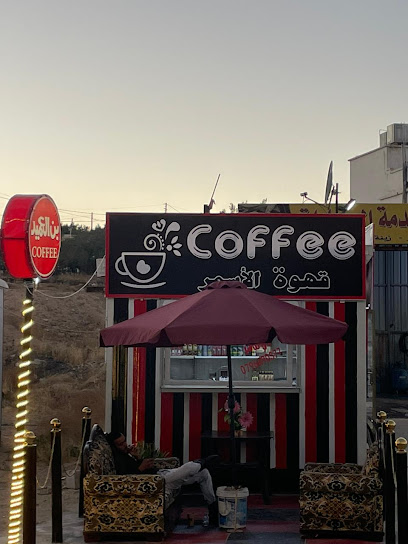
سوبر ماركت بلازا
Discover the vibrant flavors of Jordan at Supermarket Plaza, your go-to grocery store for fresh produce and local delicacies.
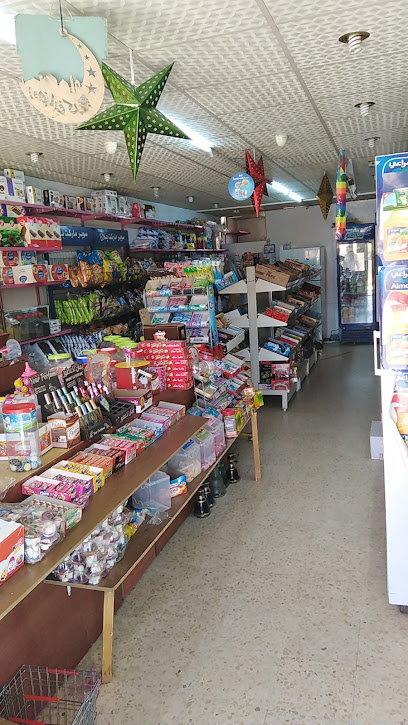
Friends Coffee
Discover the essence of community and comfort at Friends Coffee, where every cup tells a story of flavor and connection.
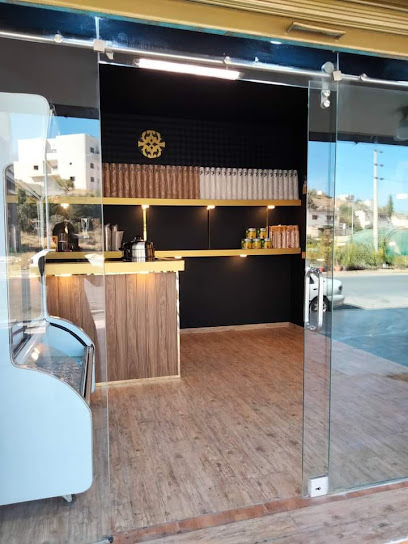
معرض صبايا سنتر للالبسة الجاهزة
Explore the vibrant fashion scene at صبايا سنتر للالبسة الجاهزة in Nejel, where modern style meets traditional Jordanian flair.
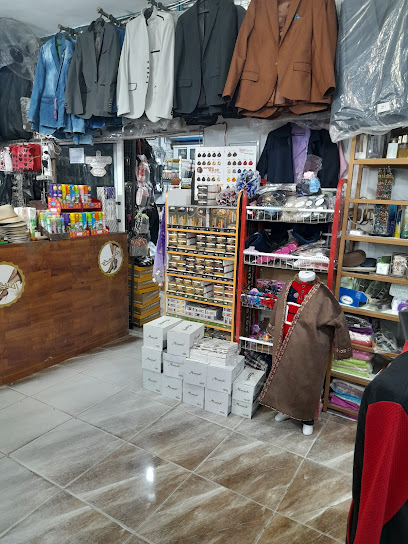
Jordan global mall
Experience the ultimate shopping adventure at Jordan Global Mall, where modern retail meets local culture and entertainment.

تاليا للالبسه والزي الشرعي MAM
Explore the unique offerings of تاليا للالبسه والزي الشرعي MAM, where tradition meets style in Jordan's vibrant clothing scene.
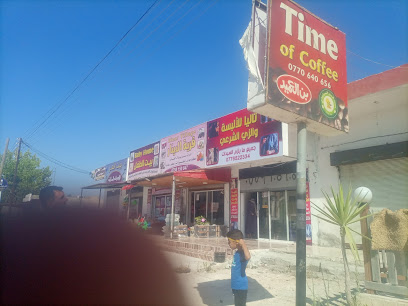
بيت عو
Discover the rich flavors of Jordan at بيت عو, a charming coffee shop offering traditional brews and a cozy atmosphere.

Jordan
Explore the enchanting landscapes and rich culture of Jordan, where history meets hospitality and flavors come alive.

Zarqa
Explore Zarqa's vibrant gift shops for unique Jordanian souvenirs and immerse yourself in the rich culture and craftsmanship of the region.

Essential bars & hidden hideouts
Time Out
Experience the best of Jordanian cuisine at Time Out Restaurant in Wadi Musa, where flavors meet hospitality in a stunning setting.
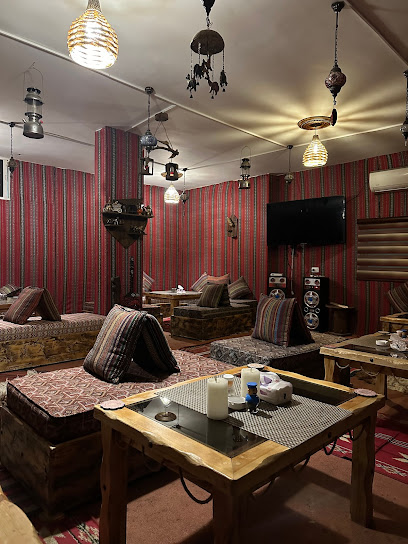
The Cave Bar
Discover The Cave Bar in Wadi Musa – a unique cave bar experience with cocktails, local brews, and a relaxing atmosphere.
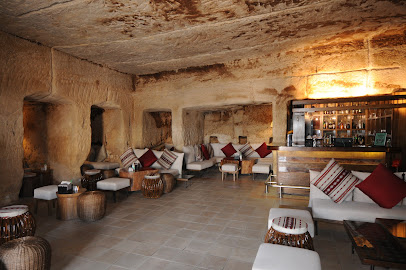
The Basin Restaurant
Experience authentic Jordanian flavors and stunning views at The Basin Restaurant in Wadi Musa, the gateway to Petra.
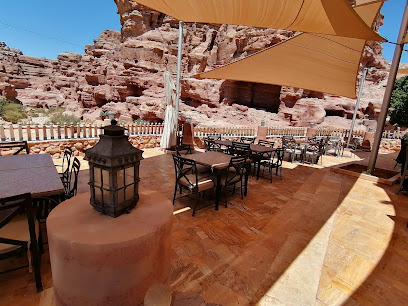
Red Cave Restaurant
Experience authentic flavors at Red Cave Restaurant in Wadi Musa, where local cuisine meets warm hospitality amidst breathtaking scenery.
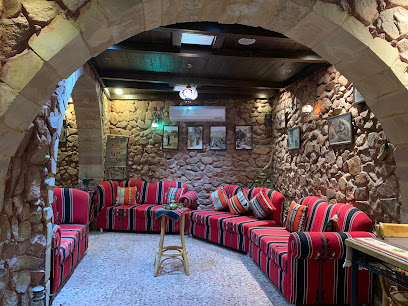
VIP cafe
Discover the exquisite flavors of VIP Cafe in Nejel, where traditional Jordanian cuisine meets modern dining in a welcoming atmosphere.
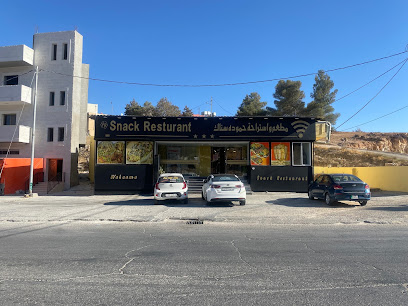
Kilkenny Bar
Discover the charm of Kilkenny Bar in Wadi Musa, where Irish hospitality meets a cozy atmosphere and delightful drinks.
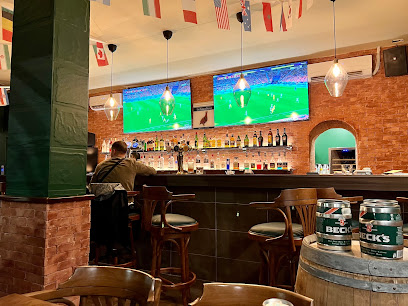
مطعم جبال الشوبك Restauant
Discover the authentic taste of Jordanian cuisine at مطعم جبال الشوبك Restaurant in Shobak, renowned for its breathtaking views and traditional dishes.
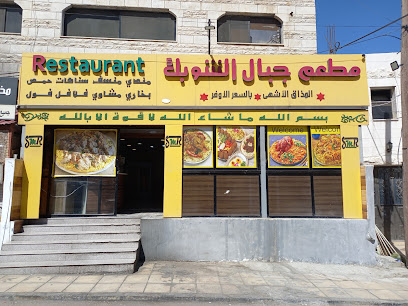
YMCA Rafiki Rooftop
Experience breathtaking views and delicious cuisine at YMCA Rafiki Rooftop, the perfect dining spot in Wadi Musa, near the ancient city of Petra.
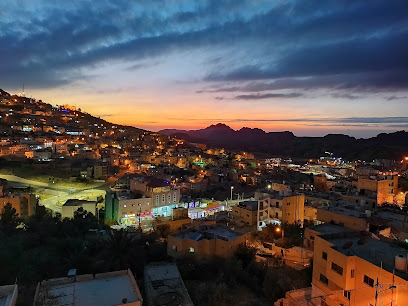
Al Maqa'ad Bar
Experience the vibrant atmosphere and local flavors at Al Maqa'ad Bar in Wadi Musa, your perfect retreat after exploring Petra's ancient wonders.
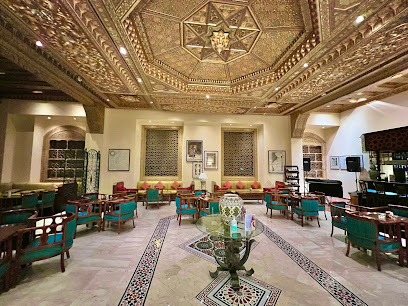
7 Caves Restaurant
Experience the charm of Shobak at 7 Caves Restaurant, where culinary excellence meets stunning views in a cozy setting.
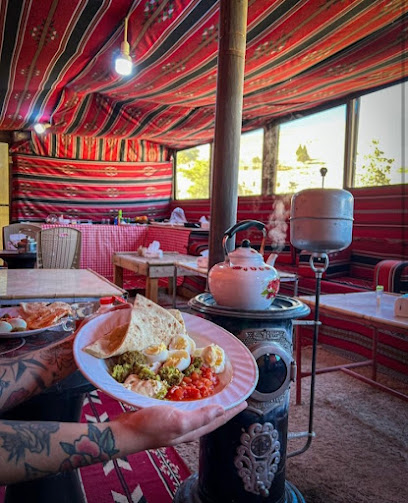
ديوان الشيخ يونس أبوهلالة
Experience the essence of Jordanian hospitality at Diwan Sheikh Younis Abu Hilala, a cozy lounge in Ma'an offering cultural delights and local flavors.

The Experience - Petra
Experience the best of Jordanian craft beer and wine at The Experience - Petra, a cultural bar in Wadi Musa perfect for travelers.
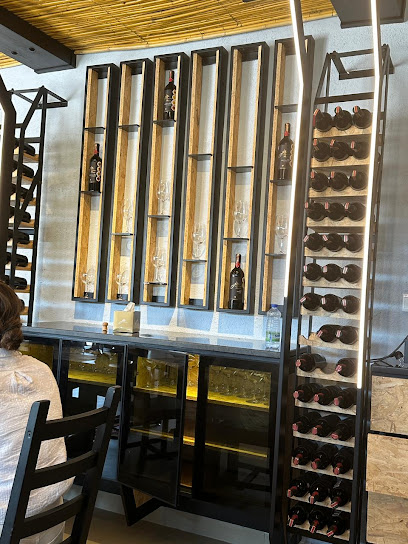
Petra Bedouin Local Food
Discover the authentic taste of Jordanian Bedouin cuisine at Petra Bedouin Local Food near Little Petra.
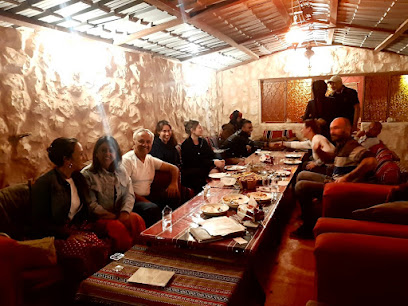
Al Multaqa Lobby Lounge
Discover the charm of Al Multaqa Lobby Lounge in Petra, where local flavors meet international elegance in a serene ambiance.
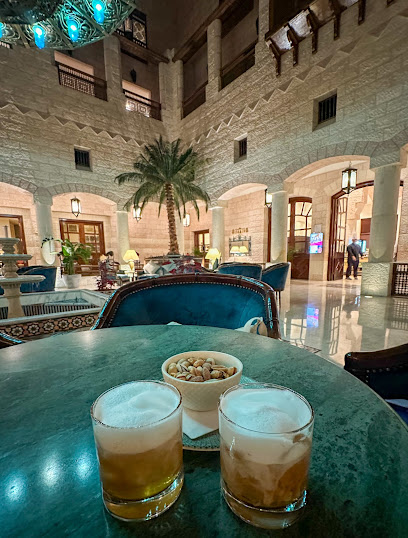
Local Phrases about Shobak Castle
-
- HelloMarhaba
[mar-ha-ba] - GoodbyeMa'a as-salama
[ma-a as-sa-la-ma] - YesNa'am
[na-am] - NoLa
[la] - Please/You're welcomeMin fadlik
[min fad-lik] - Thank youShukran
[shuk-ran] - Excuse me/SorryAasif
[aa-sif] - How are you?Kif halek?
[kif ha-lek] - Fine. And you?Tayyeb. Wa ant?
[ta-yeb. wa ant] - Do you speak English?Bitetkalam inglizi?
[bi-te-kalam in-gli-zi] - I don't understandAna mish fahem
[a-na mish fa-hem]
- HelloMarhaba
-
- I'd like to see the menu, pleaseBiddi ara il-qaa'ima, min fadlik
[bid-di a-ra il-qa-a-i-ma, min fad-lik] - I don't eat meatAna ma akol lahm
[a-na ma a-kol lahm] - Cheers!Sahtain!
[sah-tain] - I would like to pay, pleaseBiddi adfa', min fadlik
[bid-di ad-fa', min fad-lik]
- I'd like to see the menu, pleaseBiddi ara il-qaa'ima, min fadlik
-
- Help!Musaa'ada!
[mu-sa-a-da] - Go away!Imshi!
[im-shi] - Call the Police!Itsal il-bullis!
[it-sal il-bul-lis] - Call a doctor!Itsal tabeeb!
[it-sal ta-beeb] - I'm lostAna da'ay
[a-na da-a-y] - I'm illAna mareed
[a-na ma-reed]
- Help!Musaa'ada!
-
- I'd like to buy...Biddi ashtry...
[bid-di ash-try] - I'm just lookingAna bissirf bafham
[a-na bis-sirf ba-fham] - How much is it?Kam huwa thamanu?
[kam hu-wa tha-ma-nu] - That's too expensiveHatha ghali jiddan
[ha-tha gha-li jid-dan] - Can you lower the price?Momkin takhaffif il-thaman?
[mom-kin tak-haf-fif il-tha-man]
- I'd like to buy...Biddi ashtry...
-
- What time is it?Kam el sa'a?
[kam el sa-a] - It's one o'clockHuwa sa'a wahida
[hu-wa sa-a wa-hi-da] - Half past (10)Nisf sa'a (ashra)
[nisf sa-a (ash-ra)] - MorningSabah
[sa-bah] - AfternoonDuhur
[du-hur] - EveningMasaa
[ma-sa-a] - YesterdayAms
[ams] - TodayLyawm
[lyawm] - TomorrowGhadan
[gha-dan] - 1Waahid
[wa-a-hid] - 2Ithnayn
[ith-nayn] - 3Thalatha
[tha-la-tha] - 4Arba'a
[ar-ba-a] - 5Khamsa
[kham-sa] - 6Sitta
[sit-ta] - 7Saba'a
[sa-ba-a] - 8Thamania
[tha-ma-ni-a] - 9Tisa'a
[ti-sa-a] - 10Ashara
[a-sha-ra]
- What time is it?Kam el sa'a?
-
- Where's a/the...?Wayn...
[wayn] - What's the address?Shoo el 3nwan?
[shoo el in-wan] - Can you show me (on the map)?Momken teshrifni (3ala el khareeta)?
[mom-ken tes-hri-fni (a-la el kha-ree-ta)] - When's the next (bus)?Mata el otobees el tali?
[ma-ta el o-to-bees el ta-li] - A ticket (to ....)Talit (ila ...)
[ta-lit (i-la ...)]
- Where's a/the...?Wayn...
History of Shobak Castle
-
Shobak Castle, also known as Montreal, was built in 1115 by Baldwin I of Jerusalem during the Crusader period. It was strategically located to control the trade routes between Egypt and Syria. The castle's construction marked the beginning of a fortified network that aimed to secure the Crusaders' hold over the Holy Land.
-
Shobak Castle served as a crucial stronghold for the Crusaders in the region. Its robust defenses included thick walls, rounded towers, and a deep moat. The castle withstood several sieges due to its sophisticated fortifications and the resilience of its defenders. It played a vital role in the Crusader States' strategy to maintain their territories.
-
One of the most significant events in Shobak Castle's history was the siege by Saladin in 1189. After a prolonged and grueling siege, the castle finally fell to Saladin's forces. This event marked the end of Crusader control over Shobak and the surrounding region, as the castle became part of the Ayyubid dynasty's territory.
-
During the Mamluk period, Shobak Castle was renovated and repurposed. The Mamluks enhanced the castle's defenses and used it as a military garrison. The castle continued to play a role in regional conflicts and served as a base for Mamluk operations in southern Jordan. Evidence of Mamluk architecture and inscriptions can still be seen in the castle.
-
In the Ottoman era, Shobak Castle's strategic importance waned, and it gradually fell into disrepair. However, the Ottomans still maintained a presence in the area and used the castle as an administrative center. The remnants of Ottoman structures and inscriptions provide insights into the castle's role during this period.
-
Interest in Shobak Castle was revived in the 19th and 20th centuries by European explorers and archaeologists. Their efforts led to the documentation and preservation of the castle's history. Today, Shobak Castle is a significant historical and tourist site, attracting visitors who are eager to explore its rich past and architectural marvels.
-
Shobak Castle showcases a blend of architectural styles from different periods. Visitors can see Crusader-era fortifications, Mamluk renovations, and Ottoman additions. Notable features include the original Crusader chapel, intricate Mamluk inscriptions, and the deep well that provided the castle with a reliable water source even during sieges.
-
Shobak Castle is not just a historical monument; it is a symbol of the region's diverse cultural heritage. The castle's layered history reflects the various civilizations that have influenced Jordan over the centuries. It stands as a testament to the strategic importance of the region and the enduring legacy of its past inhabitants.
Shobak Castle Essentials
-
Shobak Castle, also known as Montreal Castle, is located in the Ma'an Governorate of Jordan. The nearest major city is Amman, approximately 200 kilometers away. From Amman, you can reach Shobak by taking a bus or renting a car. The journey by road typically takes around 3 hours. Alternatively, you can also take a taxi or arrange for a private tour guide to drive you directly to the site.
-
Once at Shobak Castle, the best way to explore the area is on foot due to the rugged terrain. If you're staying in nearby towns such as Wadi Musa or Petra, local taxis and tour buses can be hired to take you to and from the castle. Be sure to negotiate the fare before starting your journey. Renting a car offers more flexibility and allows you to explore the surrounding areas at your own pace.
-
The official currency in Jordan is the Jordanian Dinar (JOD). Credit cards are accepted in some hotels, restaurants, and larger shops, but it is advisable to carry cash, especially when visiting rural areas like Shobak. ATMs are available in larger towns such as Wadi Musa, but it is wise to withdraw sufficient cash before traveling to ensure you have enough funds for your visit.
-
Shobak is generally a safe destination for tourists. However, like any travel destination, it is advisable to take standard precautions. Avoid walking alone at night in unfamiliar areas and keep an eye on your belongings in crowded places. There are no specific high-crime areas targeting tourists in the vicinity of Shobak Castle, but it is always best to stay vigilant and aware of your surroundings.
-
In case of an emergency, dial 911 for immediate assistance. The nearest medical facilities are located in the town of Shobak or in Wadi Musa, which is closer to Petra. It is recommended to have travel insurance that covers medical emergencies. For minor health issues, there are pharmacies in the nearby towns where you can purchase over-the-counter medications.
-
Fashion: Dress modestly, especially when visiting religious or historical sites. Avoid wearing revealing clothing. Religion: Respect local customs and traditions. When visiting places of worship, dress conservatively and remove your shoes if required. Public Transport: Be respectful and offer your seat to elderly passengers. Do not eat or drink on public transport. Greetings: Greet people with a handshake. A slight bow of the head is also a sign of respect. Eating & Drinking: Try local delicacies and accept food offerings graciously. Do not refuse hospitality, as it is considered impolite.
-
To experience Shobak Castle like a local, visit the nearby village of Shobak where you can interact with the residents and learn more about the history of the area. Engage with local guides who often have fascinating stories and insights about the castle that you won't find in guidebooks. Don't miss the opportunity to try traditional Jordanian dishes in local eateries. For a unique experience, explore the hidden tunnels and chambers within the castle, which are often overlooked by casual tourists.
Nearby Cities to Shobak Castle
-
Things To Do in Petra
-
Things To Do in Tafilah
-
Things To Do in Ma'an
-
Things To Do in Kerak
-
Things To Do in Masada
-
Things To Do in Ein Gedi
-
Things To Do in Beersheba
-
Things To Do in Wadi Rum
-
Things To Do in Dead Sea
-
Things To Do in Eilat
-
Things To Do in Aqaba
-
Things To Do in Madaba
-
Things To Do in Bethlehem
-
Things To Do in Jerusalem
-
Things To Do in Modi'in








